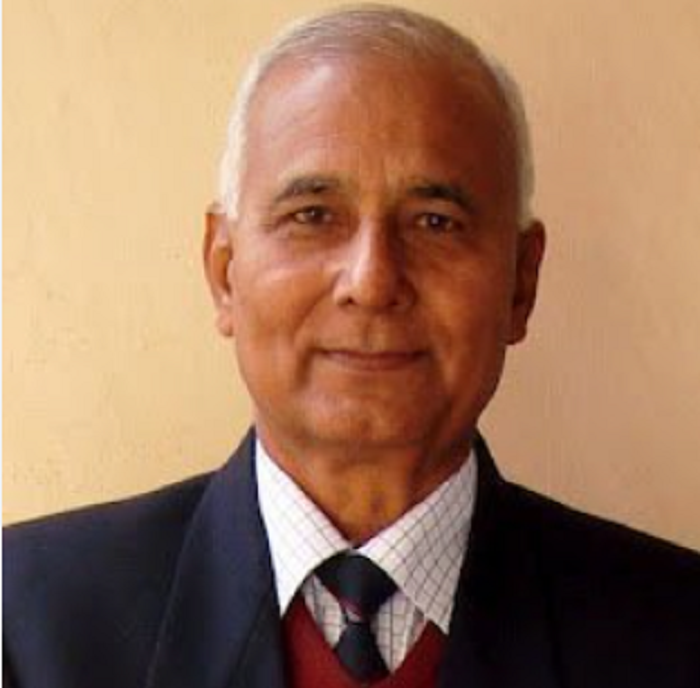(Asian independent) Instead of getting caught up in the efforts being made to use the questions of Aurangzeb, Rana Sanga and Shivaji to fulfill their own political agenda, the citizens need to think and understand the current crisis that our country is facing and take a strong political step. I only want to tell the countrymen that the history of development of our country has never been such as the concept of Hindu Rashtra that the Rashtriya Swayamsevak Sangh is giving. Everyone knows that when small European nations were fighting among themselves, they found a way to end the war and signed the West Phalia Agreement in 1648, under which the concept of nation state was basically born. The development of the civilization of India, China and Arab countries has not taken place on the path that has been the path of Europe. There were princely states in India, there were small kingdoms, everyone fought to expand their own estates and territories. People of different religions and sects held high positions in the armies of all. Calling it a war fought in the name of religion is actually a part of a big political ploy, which needs to be understood and countered. The manner in which SP MP Ramjilal Suman has used the word traitor in the context of Babar and Rana Sanga in Parliament shows that SP is also stuck in the same political ideology which is the RSS’s understanding of the nation state.
Underlining the importance of 1857, a few years ago, All India People’s Front founder member Akhilendra Pratap Singh has propounded in his article that the tradition of Sahu Ji Maharaj, Jotiba Phule and Dr. Ambedkar was against British colonialism in the same way as other streams were. But they were not in favour of letting go of those feudal, casteist forces which had made a large section of the society a victim of the cruel and inhuman caste system for thousands of years. At present, a lot of private armies are being raised in the country to promote barbaric politics again. In today’s era, these are the representatives of feudal, mafia and corporate capital. If you identify the leaders of all the private armies, you will understand this very well. On the basis of this identification, the AIPF is in touch with social and political activists from various fields and has started a dialogue. In his article of 1857, Akhilendra Pratap Singh has written an intro which will help in understanding today’s controversy. Therefore, we are reproducing this intro.
“What was the role of the first anti-colonial War of Independence of 1857 in making India a modern nation-state? The statement of the Rashtriya Swayamsevak Sangh that India has been a Hindu nation since ancient times completely rejects the historical process of a piece of land becoming a country and a nation-state. The concept of country and nation-state has also evolved over time. There is a deep tendency to mix history and myth in the ideology of Hindutva. The idea of the country has been present here since ancient times. Historians believe that the idea of the country is seen in an embryonic state during the period of 16 Mahajanapadas. Ashoka’s empire was spreading to North and South India. In this sequence, the rise and fall of many empires is seen. In the 14th century, Amir Khusro gave a new interpretation and identity of Indianness and gave a new dimension to language, culture and music. Amir Khusro declared that ‘I am a Hindustani Turk’. During the reign of Akbar, the identity of Hindustan emerges as a political country where to identify the land of India, Kabul and Kandahar were considered the two gates of Hindustan. On the other hand, moving forward from the political concept of the country, the concept of the modern nation-state actually emerged during the first freedom struggle of 1857 against British colonialism, which later flourished during the national freedom movement. The Indian nationalism of 1857 stands strongly against Nazi-fascist nationalism and its shadow, the nationalism of the Rashtriya Swayamsevak Sangh. The nationalism of Savarkar and Golwalkar is influenced by European nationalism and searches for internal enemies for its existence, whereas in the nationalism of 1857, citizens of all communities, religions and regions fought a historic battle against British colonialism by establishing rock solid unity. While the nationalism of 1857 is inclusive and progressive, the nationalism of the Sangh is disruptive and regressive. While the medieval period of Indian history had prepared the ground for the formation of modern India on the basis of its diversity and cultural coordination, the Rashtriya Swayamsevak Sangh identifies the entire medieval period as the dark age of Hindu slavery. This is the reason that instead of fighting against the British rule, the Rashtriya Swayamsevak Sangh helped them and by accepting the two-nation theory of the British, played a role in the partition of India like the Muslim League.”
S.R. Darapuri
National President, All India People’s Front









